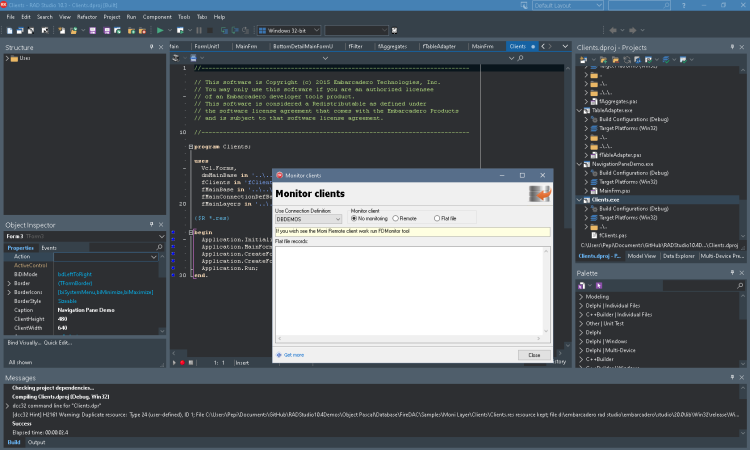Efficient database integration is the backbone of enterprise applications. As a Delphi developer with over four years of experience, I’ve faced countless challenges optimizing databases to meet demanding performance standards. This blog highlights practical techniques to ensure your Delphi applications are fast, responsive, and scalable—key qualities for enterprise success
Understanding the Importance of Database Optimization
Enterprise applications often process large datasets and handle complex queries. Poorly optimized databases can lead to:
- Sluggish performance.
- Higher resource consumption.
- User dissatisfaction.
By optimizing your database, you can significantly enhance the efficiency of your Delphi applications while reducing operational costs.
Key Strategies for Database Optimization
1. Reduce Database Round Trips
Minimizing database queries can drastically improve performance. Instead of running multiple small queries, batch your operations:
Example:
-- Inefficient
SELECT * FROM Orders WHERE CustomerID = 1;
SELECT * FROM Orders WHERE CustomerID = 2;
-- Optimized
SELECT * FROM Orders WHERE CustomerID IN (1, 2); In Delphi, use datasets like TClientDataSet to fetch bulk data and work offline where applicable.
2. Use Indexes Wisely
Indexes improve query performance by speeding up data retrieval, but too many indexes can slow down inserts and updates. Strike a balance:
- Use composite indexes for multi-column searches.
- Avoid unnecessary indexing on low-cardinality fields (e.g., boolean columns).
Tool Highlight:
Use database management tools like SQL Profiler or MySQL Workbench to analyze query performance and identify bottlenecks.
3. Optimize Parameterized Queries
Parameterized queries are not only secure but also more efficient since they allow query caching.
Example in Delphi:
var
Query: TFDQuery;
begin
Query.SQL.Text := 'SELECT * FROM Products WHERE CategoryID = :CategoryID';
Query.ParamByName('CategoryID').AsInteger := 1;
Query.Open;
end; 4. Leverage Connection Pooling
Managing database connections can be a significant overhead in enterprise applications. Connection pooling allows applications to reuse existing connections rather than creating new ones, saving time and resources.
In Delphi, configure connection pooling with components like FireDAC.
5. Analyze and Cache Expensive Queries
For read-heavy operations, caching can reduce database load and improve speed. Use in-memory datasets like TFDMemTable to store frequently accessed data temporarily.
Common Pitfalls to Avoid
- Over-normalization: While normalization improves data integrity, excessive normalization can lead to complex joins and slower queries.
- Neglecting maintenance: Regularly update statistics, rebuild indexes, and archive unused data.
Performance Tools to Consider
1. FireDAC Monitoring: Provides real-time monitoring of queries and connections.

2. SQL Profiler: Analyze slow-running queries in MSSQL.

3. Database Performance Advisors: Tools like Oracle AWR Reports for in-depth analysis.
Real-World Example
In one of my projects for the healthcare and finance industry, optimizing database queries reduced load times by 40%. We achieved this by restructuring indexes and implementing parameterized queries. These improvements not only enhanced user experience but also reduced server costs.
Conclusion
Database optimization is a continuous process requiring regular monitoring, analysis, and updates. By implementing the techniques discussed, you can ensure your Delphi applications meet the high-performance standards of modern enterprise environments.
🚀Share your tips and experiences in the comments below! Let’s exchange ideas to build more efficient enterprise applications.



